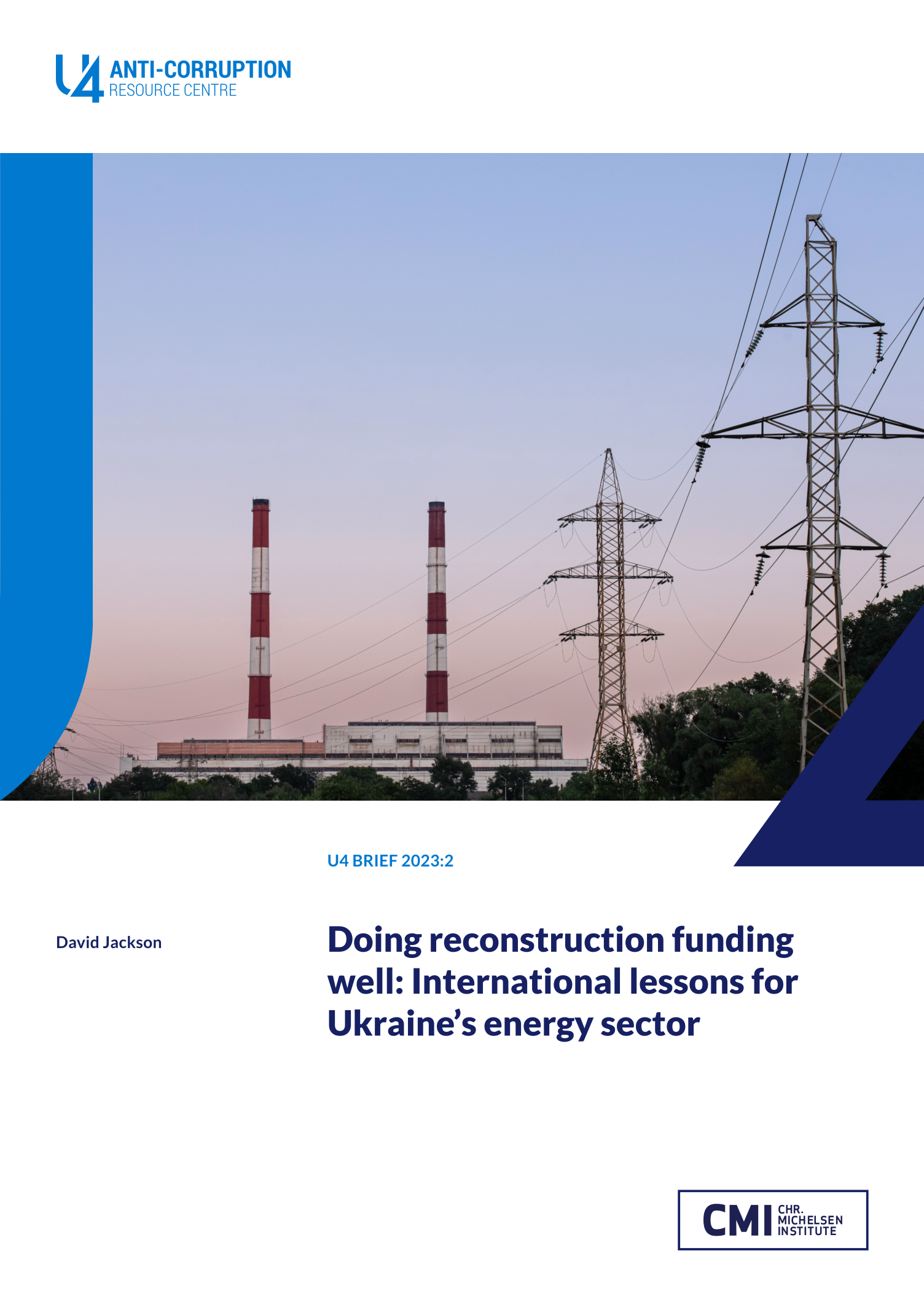Main points
- Recovery and reconstruction of Ukraine’s energy sector will involve large sums of money, increasing the risk of corruption.
- Procurement corruption is the greatest area of risk, as it is hard to detect, deeply damaging, and liable to become systemic.
- Three approaches have been tried in various post-conflict and recovery contexts to reduce corruption risks: an ‘existing institutions’ approach; a ‘specialist institutions’ approach; and ‘internationalising risk management’ approach.
- Evidence from other settings shows that ‘specialist institutions’ approach and ‘internationalising risk management’ approaches can be effective, but only if they provide incentives for domestic capacity to develop in the long term.
- Indeed, the central lesson is that the most important pathway for accountability in energy reconstruction is to invest in domestic capacity.
- International actors have an important role to play to build capacity, but domestic actors need to be assertive on the need for local ownership and proceed with capacity building on their own terms.



